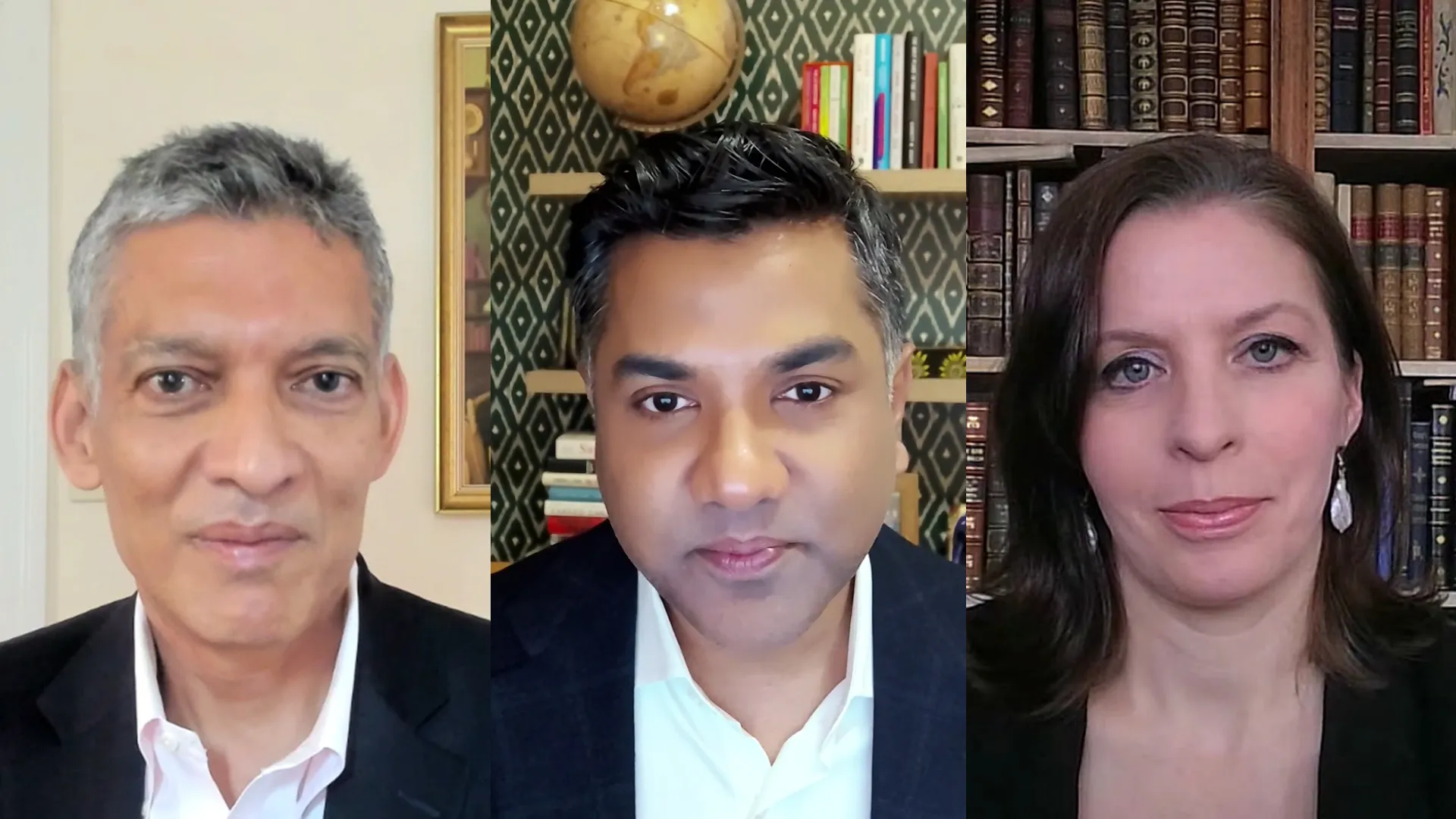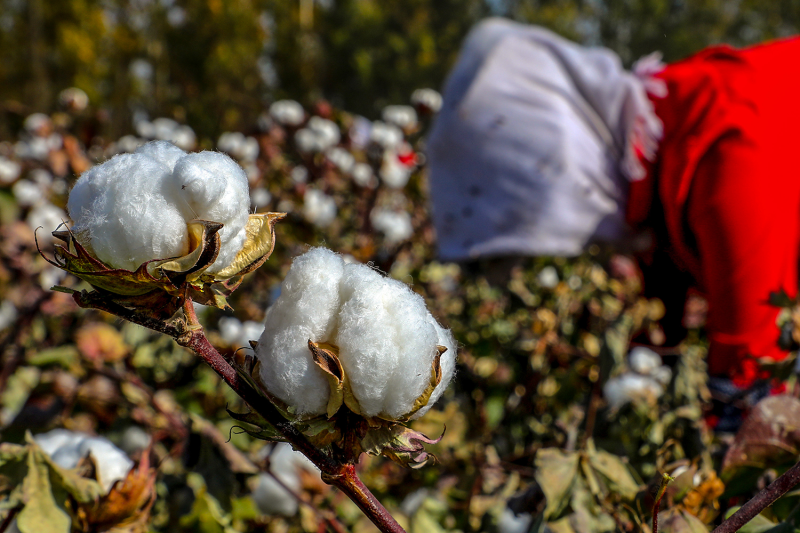Is the World Going to Deglobalize?

Is the World Going to Deglobalize?
Trump’s tariffs come on top of a recent loss of faith in free trade and interconnectedness.
U.S. President Donald Trump’s tariffs have spurred intense discussions about the future of globalization. Will giant conglomerates be forced to localize manufacturing and production? How long will that take, and what will it do to the price of everyday goods?
While Trump’s tariffs represent a serious shock to the system, the reality is that the world has been stepping back from globalization for several years now, with reasons that include U.S.-China competition, the COVID pandemic, competition over technological supremacy, and nationalism. On the latest episode of FP Live, I explored how a more accelerated process of deglobalization might impact countries, especially smaller economies that don’t get as much media attention. Two expert guests joined us: Eswar Prasad, a professor of trade policy at Cornell University, and Elisabeth Braw, a senior fellow at the Atlantic Council, an FP columnist, and the author of Goodbye Globalization: The Return of a Divided World. Subscribers can watch the full discussion on the video box atop this page, or follow the FP Live podcast. What follows here is a lightly edited and condensed transcript.
U.S. President Donald Trump’s tariffs have spurred intense discussions about the future of globalization. Will giant conglomerates be forced to localize manufacturing and production? How long will that take, and what will it do to the price of everyday goods?
While Trump’s tariffs represent a serious shock to the system, the reality is that the world has been stepping back from globalization for several years now, with reasons that include U.S.-China competition, the COVID pandemic, competition over technological supremacy, and nationalism. On the latest episode of FP Live, I explored how a more accelerated process of deglobalization might impact countries, especially smaller economies that don’t get as much media attention. Two expert guests joined us: Eswar Prasad, a professor of trade policy at Cornell University, and Elisabeth Braw, a senior fellow at the Atlantic Council, an FP columnist, and the author of Goodbye Globalization: The Return of a Divided World. Subscribers can watch the full discussion on the video box atop this page, or follow the FP Live podcast. What follows here is a lightly edited and condensed transcript.
Ravi Agrawal: Eswar, how will Trump’s tariffs impact global trade?
Eswar Prasad: It’s worth thinking about what the promise of globalization was in the first place. It was the idea of broader trade and financial integration that would lift everybody up. Now, of course, there were distributional consequences within each country. All Americans may have been made better off by globalization, but try telling that to the Detroit auto manufacturers. Backlash about globalization took on a significant life of its own. Many developing countries ended up taking on too much debt, and their populations are suffering as a consequence.
Now, it’s not quite right to blame globalization for all of this. There were policy mistakes; there were issues of certain countries not playing fair. Of course, a lot of what Donald Trump says is not true, but there is sometimes a kernel of truth. Some countries did not entirely play fair. So today, trade, let alone finance, is no longer seen as a positive-sum game, where everybody benefits. It is seen as a zero-sum game. And certainly, there were some changes already coming, but Trump’s tariffs are really going to make a big difference.
The question is, how do firms or countries respond? The big theme will be a shift away from efficiency, meaning exchanging mean and lean supply chains for diversification. Because the geopolitical risks have increased, climate-related risks that could affect supply chains have increased, and now we have policy-induced risks such as tariffs. So I wouldn’t quite call it the end of globalization yet, but it’s certainly going to morph into a very different form.
RA: Elisabeth, you wrote a book called Goodbye Globalization, and you’ve been arguing that there’s been a shift away from open borders, from free trade, from globalization. Why was that shift underway? How was it manifesting itself, even before Trump?
Elisabeth Braw: Over the past decade or so, faith in globalization has plummeted. We started seeing ordinary citizens voicing unhappiness with globalization. We saw it in the U.K. with Brexit. Even though voters were told that the U.K. financially benefited from being in the European Union, they just didn’t like the concept. And we saw that in the U.S. as well, even though many elected politicians made the financial case that trade allows for cheaper goods. Many people still didn’t like that.
And then I started really realizing that something was changing fundamentally when Western companies operating in Russia and China started saying, “Well, it’s just not the same. It’s starting to become too risky.” One aspect was increasing authoritarianism there. For example, a decade ago, the CEO of a paper and pulp company told me they were not investing in Russia anymore. And that was an outlier at the time. But if you’re in the paper and pulp business, you grow trees, and that means you have a very long perspective because a tree takes up to 100 years to grow. He decided that Russia was just not going to be stable enough for the next 100 years. And then in China, Western companies felt it was less safe for them to do business there. Chinese authorities raided some businesses. And others were edged out of the country because they were no longer part of the Chinese plan to position itself away from low-end manufacturing to high-end manufacturing. And if you’re a business, you see those risks developing, whereas statistics only see developments in hindsight. So I started seeing increasing concern among Western businesses and executives about Russia and China in particular. Those were the two crown jewels of globalization, and it’s no longer desirable or safe enough to do business there.
And then, of course, the third element was voters at home. Globalization started losing adherents very rapidly and from very different quarters.
RA: Eswar, on that note, you once ran the [International Monetary Fund] IMF’s China division. How much of an impact did the so-called China shock have on all this? How did it affect manufacturing in other countries?
EP: China had a very big impact on manufacturing, especially in the U.S. One might argue that it was inevitable that a relatively high-wage economy like the U.S. would be competitively disadvantaged relative to lower-wage countries. And when China joined the World Trade Organization (WTO) in the early 2000s, it got access to U.S. and other foreign markets. But there was a sense that China did not play by the rules. It gained access to markets in many countries, including the United States, but did not give foreign companies, including U.S. companies, the same access.
Now, many American companies started using China as an important part of their supply chains and wanted to sell into that rapidly expanding market. So, they wanted China and the U.S. to maintain a good relationship. In my view, one of the critical components in keeping this relationship stable, at least on the economic front, is that American companies worked to keep things on an even keel.
That balancing force has disappeared in the last few years. Businesses came to believe China had no intention of upholding the commitments to open its markets. If a Chinese firm was going to take American investment, it was going to require technology transfers from that company. German and Japanese companies investing in joint ventures also felt that their Chinese partners took their technology and then became super competitive. So China really did sway the debate in a very important way. I wanted to mention China’s role in the current conjuncture as well because the U.S. is throwing up tariffs, and the logical response from other countries might be to band together and trade more among themselves. The problem is that the Chinese economy has done moderately well in the last three or four years, but only because state-owned companies and state-financed investment built up an enormous production capacity in China, while household consumption has not kept up.
So now the rest of the world is terrified because on the one hand, U.S. tariffs will prevent countries’ exporters from reaching the largest consumer market in the world, and at the same time, the second-largest power in the world is desperate to push out its exports. No one wants Chinese exports to wash up on their shores and dominate their industry. So now we are caught in a very difficult trap: Perhaps we should talk about a China shock 2, which will really affect global trade realignments.
RA: Elisabeth, through much of the 1990s, American companies were lobbying for free trade and an open relationship with China. And now, they’re facing an environment where they have to de-risk and potentially even decouple. What does that look like for a major conglomerate that spent years building supply chains that involve China? And then add in the pressure that the Trump administration may put on third countries, so not China, to also de-risk and decouple from China. What does that do to big companies?
EB: It gives them a massive headache.
When American and other Western companies realized they should reduce exposure to China, they learned that it is an extremely complicated and cumbersome process, with lots of forms and endless practical steps. It’s not going to be quick, but Western companies have been looking at countries to move to for several years now. Even if you move a factory, though, where are your suppliers going to come from? And what if your suppliers remain in China because of how you’ve built up your supply chains? Where will you find other suppliers? That was already happening when the Trump administration added this extra layer of trade war to the situation.
And it’s not just a matter of economics; it’s a matter of geopolitics. We have seen increasing confrontations between Russia and the West, obviously, but also China and the West. This is the fundamentally problematic reality for companies. Ordinarily, you do business in a country that’s safe. China and Russia were safe. And now, suddenly, they are ideological adversaries. So the goalposts are shifting as to which countries are safe. Setting up operations, including suppliers and factories, takes a long time. So Western companies are essentially operating behind the front lines in this ideological confrontation that we are in.
What’s more, even if you do find another country to move your operations to, no one country will replace China. So we’ll probably see alliances or groupings, like Vietnam teaming up with other countries to offer attractive solutions to Western companies. But will it come quickly enough? For companies operating in Russia, it didn’t. They left Russia, with billion-dollar losses, but at least they managed to get out of the country. The ones that didn’t move quickly are stuck and still losing money. But China is several times more important.
RA: Eswar, I’m curious whether you think countries can bypass China or the United States in trading. I am thinking about agreements like the one that the EU did with Mercosur. How long does it take for other blocs and partnerships like that to emerge?
EP: It’s a very complicated scenario today, where the two largest economies are pulling back from trade, but in different ways. China talks about how important trade is, about being a protector of globalization, but wants to proceed with globalization on its own terms. So we are going to see shifts. At the margin, companies are starting to focus more on resilience and move their production and supply chains toward geopolitical allies of their home countries. India, for instance, is seen as more of a Western ally, so Apple is shifting some manufacturing there. But India cannot quite match China’s scale. So we will not see enormous changes immediately, but at the margin certainly change is coming.
It’s a near certainty that trade alliances will pop up among other countries. There is one problem which will be particularly difficult for smaller countries to face: The rules of the game have now been completely shredded. The World Trade Organization was very important in holding both small and large countries to the same set of rules. One can argue that some of the larger countries were not necessarily applying those rules, but now the world’s largest economy has basically disengaged from the WTO. So we’ve entered a world without broad rules of the game to follow, and without an enforcer of these rules, which is a role the U.S. has played to some extent or the other over the years.
I really worry about lower-income countries. Countries like India and Brazil rely on trade but are big enough to stand on their own. But a large swath of countries, including many African countries, are blessed with better demography and younger populations. They need globalization to build up their manufacturing sectors and create vibrant middle classes. And suddenly they are emerging into a world where the trade landscape has shifted fundamentally. So for those countries in particular, it will be a very hostile environment.
RA: Eswar, I’m reflecting on your point that a deglobalizing world hurts smaller countries disproportionately, as bigger countries can afford to insulate and survive. Let’s apply that same framework to within countries; what happens to lower-income families and workers in a world that is less globalized? Many economists argue tariffs are a regressive tax. And economists who are favorable to Trump argue that the return of manufacturing will make up for that through job creation. So how does globalization impact lower-income families in general?
EP: So it’s worth going through a thought experiment, Ravi. You could make tariffs very effective by essentially shutting yourself off from the rest of the world. So everything that was consumed in the U.S. would be produced in the U.S. Then manufacturing would have to come back to the U.S. Now, certainly that would mean jobs in certain sectors. We would start producing toys here; we would start producing clothes and footwear. The difficulty, though, is because American workers want relatively higher wages for this, things like footwear and clothes would become very expensive, making it harder for people to afford those goods, so demand would start being compressed. So we would certainly have jobs in sectors of the economy where we have lost jobs, but the overall effect on the U.S. economy would be very negative. This is why economists think that globalization is a good thing. Globalization essentially shifted production in a manner that is most efficient worldwide.
But the real challenge, of course, is making sure that everybody in the economy still feels there’s opportunity. In my view, what is really concerning about how globalization played out is while the benefits are very large, there is a sense that it lacked policies to protect those who’ve been disrupted. And disruption is inevitable in a market economy, but especially with globalization. So if you don’t protect those who feel that their jobs have been disrupted, if you increase uncertainty through policies like tariffs, and then make a lot of people feel that they lack opportunities and miss out on the benefits of globalization which go to the economic and political elites, that’s a very toxic mix.
So instead of focusing on globalization as the problem, think about policies that are necessary, like income support policies. It’s difficult to create a sense of equality of opportunity, that people need to be protected from hardship that may be temporary. It’s very easy to ignore the very difficult work that goes into those policies and instead say, “This is all China’s fault.” Unfortunately, that is where we are politically.
RA: Elisabeth, to expand on this, are there areas that deglobalization might help, like workers who’ve been left behind or environment? In your research on this topic, are there any upsides to deglobalization?
EB: I’m glad you mentioned the environment, Ravi, because those who built globalization did so without any consideration for the environment. The COP meetings, as we know, were an afterthought and a very laudable effort to address climate change and CO2 emissions, which were largely ignored when policymakers and business leaders built globalization starting in the late ’80s. If we get a chance to build Globalization 2.0, I hope and assume that climate change will be part of it if for no other reason than the fact that climate change will have become so dramatic.
But yes, bringing manufacturers closer to wherever the consumer is will be good from an environmental point of view because we are transporting things far too much. The supply chains are globe-spanning, and that’s enabled by the amazing shipping industry that can transport anything at very low cost. But that’s unnecessary.
As for bringing jobs back, which is an attractive thought, it’s expressed by people who haven’t worked in factories. I wonder how many participants in the deglobalization debate would work in a factory if one were to return to their hometown. It’s really hard work. And yes, we lost the whole generation of factory workers when factories closed, either due to automation or because they were moved overseas. But that generation is not of a working age anymore. So we would have to train new factory workers, and train them in new skills because manufacturing is much more sophisticated today. My point is, we should establish whether we have enough people willing to work in these factories that we are hoping to set up in our home countries before launching this massive effort to bring the factories back. But if we do, then we will benefit.
And, of course, national security will benefit. It is perilous to have so much manufacturing based in countries that are no longer reliable friends.
Ravi Agrawal is the editor in chief of Foreign Policy. X: @RaviReports
More from Foreign Policy
-

An illustration shows a line of large shopping carts facing down a small Donald Trump figure holding two shopping bags. The stars of China’s flag are in the upper left corner. Why Beijing Thinks It Can Beat Trump
China’s elites have a new confidence in their own system.
-

U.S. Army Chief of Staff Randy George speaks to U.S. soldiers at the Hohenfels Training Area in southern Germany on Feb. 6. A Drawdown of U.S. Forces in Europe Is All but Certain
Here’s how the Pentagon can rebalance its approach to the continent without sacrificing U.S. interests.
-

University of California, Los Angeles students, researchers, and demonstrators rally during a “Kill the Cuts” protest against the Trump administration’s funding cuts on research, health, and higher education in Los Angeles on April 8. Why Authoritarians Attack Universities First
A Yale professor and expert on fascism talks about why he’s leaving the United States under Trump.
-

Dwight D. Eisenhower looks over a piece of paper while sitting on a couch as Robert Cutler looks over his shoulder. How Generations of Experts Built U.S. Power
And now Trump is throwing it all away.










Join the Conversation
Commenting on this and other recent articles is just one benefit of a Foreign Policy subscription.
Already a subscriber?
.
Subscribe
Subscribe
View Comments
Join the Conversation
Join the conversation on this and other recent Foreign Policy articles when you subscribe now.
Subscribe
Subscribe
Not your account?
View Comments
Join the Conversation
Please follow our comment guidelines, stay on topic, and be civil, courteous, and respectful of others’ beliefs.
Change your username |
Log out
Change your username:
CANCEL
Confirm your username to get started.
The default username below has been generated using the first name and last initial on your FP subscriber account. Usernames may be updated at any time and must not contain inappropriate or offensive language.